Heavy or deep sleepers often struggle to wake up in the morning, regardless of how loud or persistent their alarms are. This article aims to help such individuals by exploring the intricacies of the sleep cycle, the science behind sleep, and the unique challenges heavy sleepers face. We'll discuss the impact of heavy sleeping on overall health and provide practical strategies to help heavy sleepers overcome their difficulties in waking up. These include technological innovations in alarm clocks and sleep hygiene practices. If you or someone you know is such a deep sleeper that a marching band couldn't stir them – then this article is for you. Join us as we explore the science of sleep and learn how to turn the challenge of waking up into an achievable daily goal for heavy sleepers.
The Sleep Cycle and Its Impact on Heavy Sleepers
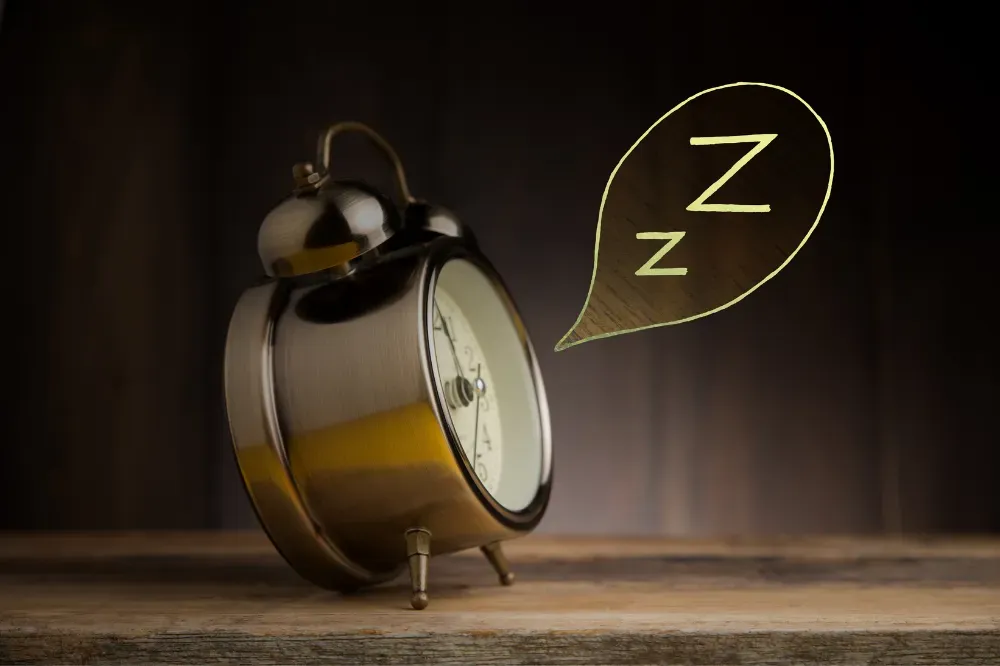
To devise effective strategies for waking up a heavy sleeper, it is crucial to first understand the complexities of the sleep cycle. The sleep cycle is not a simple, singular phase, but rather a complex sequence of various stages that the body and mind go through during rest. These stages include light sleep, deep sleep, and REM (Rapid Eye Movement) sleep, each with unique characteristics and functions.
Light sleep serves as the initial stage of the sleep cycle, acting as a transition period from wakefulness to deeper stages of sleep. During this stage, the body begins to slow down, and brain activity starts to decrease.
Deep sleep, on the other hand, is the most restorative stage of sleep. It is during this stage that the body undergoes significant repair and rejuvenation. Muscles and tissues are repaired, growth and development are stimulated, immune function is boosted, and energy is built up for the forthcoming day. This stage is critical for physical health and recovery, making it an essential component of the sleep cycle.
The final stage, REM sleep, is where dreams occur. This stage is characterized by rapid eye movement, increased brain activity, and temporary muscle paralysis. REM sleep plays a vital role in memory consolidation and learning.
Heavy sleepers often spend more time in the deep sleep stage, which can make waking them up a challenging task. This extended deep sleep phase results in a heavier sleep inertia, making the transition from sleep to wakefulness more difficult and often causing grogginess upon waking.
The implications of being a heavy sleeper can extend into their daily routines, overall health, and productivity. Difficulty in waking up can lead to rushed mornings, missed appointments, or delayed starts to the day. Over time, this can impact one's professional life, personal relationships, and overall quality of life. Moreover, despite getting more deep sleep, heavy sleepers may still feel tired during the day if their sleep cycle is consistently interrupted or if they aren't getting enough REM sleep.
Therefore, understanding the dynamics of the sleep cycle and its impact on heavy sleepers is fundamental in developing effective strategies to improve their wakefulness and overall sleep quality. This knowledge can help tailor interventions that respect the individual's unique sleep patterns while ensuring they get the necessary rest and rejuvenation their bodies need.
A Deeper Look into the Factors That Can Affect the Sleep Cycle

Sleep, a vital physiological process, is often overlooked in our busy lives. However, it's important to understand that several factors can significantly affect the sleep cycle, ultimately impacting our health and daily functioning. These factors range from lifestyle habits and medical conditions to sleep disorders like sleep apnea.
One of the common lifestyle habits that can disrupt the sleep cycle is the consumption of caffeine or alcohol, especially close to bedtime. Caffeine, a stimulant found in coffee, tea, and some types of soda, can interfere with the onset of sleep, reduce the total amount of sleep time, and disrupt the sleep-wake cycles in general. On the other hand, while alcohol might help individuals fall asleep, it often disrupts the second half of the sleep cycle, leading to fragmented sleep.
In addition to what we consume, when we sleep also plays a crucial role in the quality of our sleep. Irregular sleep schedules, often due to shift work or jet lag, can throw off our body's internal clock, also known as the circadian rhythm. This disruption can make it difficult to fall asleep and wake up at the desired times, leading to poor sleep quality and daytime fatigue.
Stress and anxiety are other significant factors that can wreak havoc on our sleep. High stress levels can lead to hyperarousal, a state that can cause difficulty falling asleep and staying asleep. It's a vicious cycle, as lack of sleep can, in turn, increase stress levels, leading to chronic insomnia in severe cases.
Furthermore, certain underlying medical conditions can also impact the sleep cycle. Conditions like chronic pain, respiratory diseases, gastroesophageal reflux disease (GERD), and endocrine disorders like diabetes can disrupt sleep patterns.
Among sleep disorders, sleep apnea is particularly detrimental to the sleep cycle. This condition, characterized by repeated episodes of shallow or paused breathing during sleep, can fragment sleep and decrease its overall quality.
Setting Up the Correct Environment for Optimal Sleep

Sleep is a vital part of our overall health, and creating a sleep-friendly environment can significantly improve the quality of your sleep, promote healthy sleep patterns, and make waking up a less daunting task. An optimal sleeping environment involves more than just a comfortable bed; it incorporates several factors that work together to facilitate restful, rejuvenating sleep.
One of the most critical aspects of crafting an ideal sleep environment is reducing noise and artificial light from a cell phone or other devices. These two elements can significantly disrupt the process of falling asleep. Noise disturbances, whether from traffic, noisy neighbors, or a snoring partner, can interrupt your sleep cycle and lead to poor sleep quality. Using earplugs, a white noise machine, or soundproofing your bedroom can help mitigate these disruptions.
Light exposure, especially the blue light from electronic devices, can interfere with the body's production of melatonin, the hormone that regulates sleep. Blackout curtains, eye masks, or reducing screen time before bed can be beneficial in creating a darker environment conducive to sleep.
Temperature control is another crucial component in setting up the correct environment for optimal sleep. Research indicates that a slightly cool room, around 65 degrees Fahrenheit, is best for promoting deep, restful sleep. Using breathable bed linens and wearing lightweight sleepwear can also help maintain a comfortable sleeping temperature.
The physical comfort provided by a high-quality mattress and pillows cannot be overstated. Your mattress should support your body's natural curves and alignment, and your pillow should maintain the natural alignment of your neck. Both these elements play a significant role in preventing discomfort and pain that could disturb your sleep.
Moreover, incorporating natural light into your morning routine can greatly assist in signaling your body to wake up. According to a post on Reddit, using a sunlight alarm clock in conjunction with a traditional alarm clock has proven to be effective for heavy sleepers. This combination encourages a more natural waking process by gradually increasing light, mimicking the sunrise, and aligning with your body's innate sleep-wake cycle. This promotes healthier sleep and ensures a more refreshing start to your day.
Understanding the Issue of Heavy Sleeping Disorder
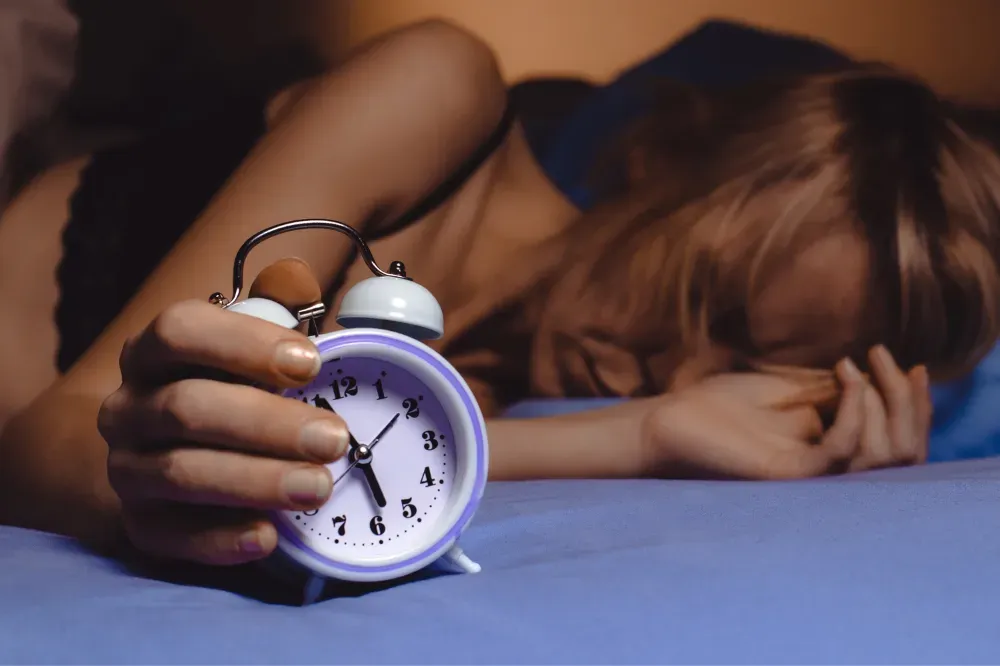
Sleeping heavily is a phenomenon that many people experience, but it's important to note that it isn't always a cause for concern. However, understanding the intricacies of heavy sleeping can help in identifying when it becomes a problem and how to address it effectively.
Heavy sleeping is often associated with various factors, including genetic predispositions, lifestyle habits, and certain sleep disorders. Genetics play a significant role in our sleep patterns; if your parents or siblings are heavy sleepers, there's a good chance you might be one, too. This is because certain traits related to sleep, such as the depth of sleep and the time it takes to fall asleep, can be inherited.
Lifestyle habits also significantly influence how heavily we sleep. For instance, consuming alcohol or other sedatives before bedtime can lead to heavier sleep. Similarly, a lack of regular physical activity or maintaining irregular sleep schedules can result in a deeper-than-usual sleep state.
Moreover, certain sleep disorders like sleep apnea can contribute to heavy sleeping. Sleep apnea, characterized by repeated pauses in breathing during sleep, can cause the individual to spend more time in the deeper stages of sleep as the body tries to compensate for the lack of quality sleep.
But it's crucial to understand that being a heavy sleeper isn't necessarily problematic. Many heavy sleepers function perfectly fine during the day and do not experience any adverse health effects. The issue arises when heavy sleeping begins to interfere with your daily routine or overall health. For example, if you're consistently struggling to wake up in time for work or school or if you're feeling excessively tired and unrefreshed despite getting a full night's sleep, it may be time to seek professional help.
Understanding the underlying causes and implications of heavy sleeping can guide potential interventions and treatments. If lifestyle habits are contributing to heavy sleeping, changes such as reducing alcohol consumption, incorporating regular physical activity, and maintaining consistent sleep schedules can help. If a sleep disorder like sleep apnea is suspected, medical evaluation and treatment are necessary.
Importance of Dealing with the Problem
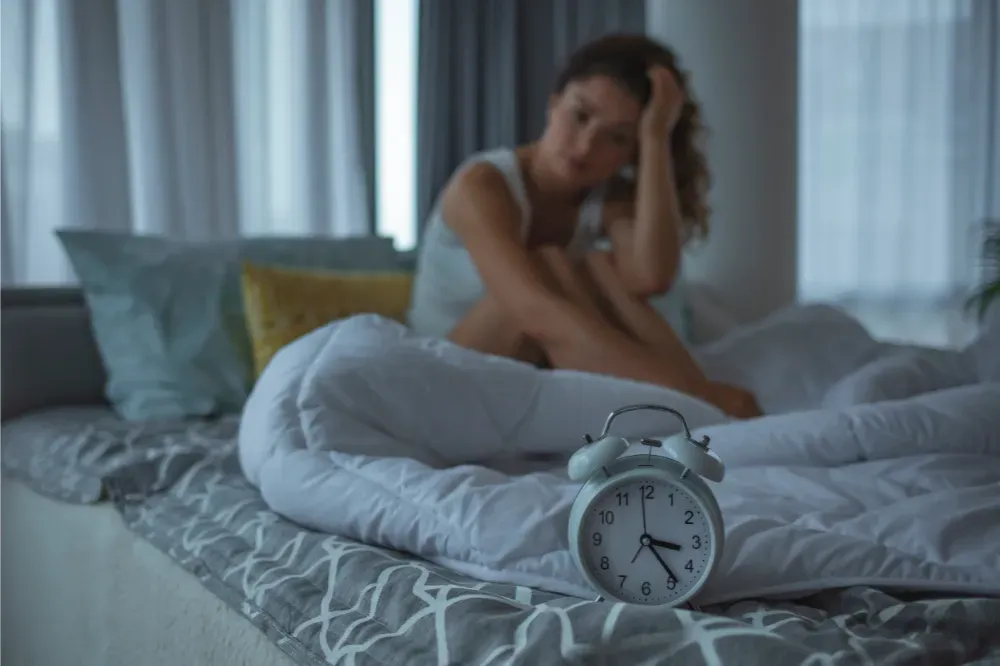
Sleep acts as a fundamental pillar for our overall health and well-being. It's a time when our bodies undertake essential restorative functions such as repairing tissues, consolidating memories, and regulating hormones. However, for those who are categorized as heavy sleepers, achieving the right quality and quantity of sleep can be a significant challenge. This struggle with maintaining a regular sleep schedule, if left unchecked, can set off a domino effect, leading to various health complications, performance issues, and a diminished quality of life.
Getting enough sleep is not merely about fulfilling a quota of hours spent unconscious. Instead, it's about entering the right stages of sleep at the right times to allow our bodies to perform their restorative duties effectively. For heavy sleepers, this balance is often skewed, leading to irregular sleep schedules that can disrupt the body's internal clock, or circadian rhythm. This disruption has been linked with an increased risk of several serious health conditions.
Research has shown that individuals with chronic sleep irregularities are more susceptible to heart disease, diabetes, and even certain types of cancer. These risks arise from the physiological stress that disturbed sleep places on the body, leading to inflammation, high blood pressure, and alterations in glucose metabolism. Thus, the implications of heavy sleeping on physical health are profound and far-reaching.
Beyond the physical health repercussions, heavy sleepers often grapple with something known as sleep inertia. This state of grogginess and disorientation, which can persist for several minutes to an hour after waking up, can greatly impact cognitive function. Memory, reaction times, decision-making abilities, and even mood can all be negatively affected during this period of sleep inertia.
This grogginess upon waking can have serious implications for performance at work or school. Reduced alertness and cognitive function can lead to decreased productivity, errors, and even accidents, particularly in jobs that require high levels of attention and quick decision-making. Moreover, the frustration and anxiety associated with consistently waking up feeling unrefreshed can take a toll on mental health over time, potentially leading to conditions such as depression or anxiety.
Therefore, the importance of dealing with heavy sleeping extends beyond mere inconvenience. It's a matter of safeguarding physical health, ensuring optimal daily functioning, and preserving mental well-being. By recognizing and addressing the problem of heavy sleeping, individuals can take proactive steps towards healthier sleep patterns, thereby enhancing their overall quality of life.
Common Methods Used to Wake up a Heavy Sleeper
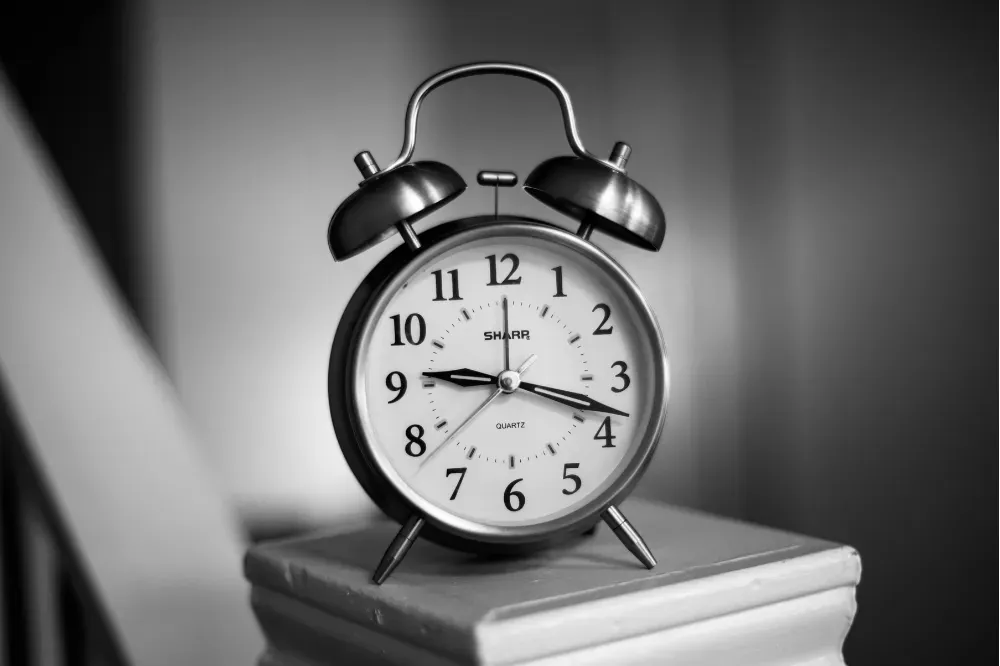
Waking up a heavy sleeper can often be challenging, given their propensity to sleep through standard alarms and external disturbances. However, several strategies have been identified that can help heavy sleepers wake up more easily. These methods range from the use of specialized alarm clocks, maintaining good sleep hygiene, to leveraging technology for automated wake-up calls.
The most common method employed to rouse a heavy sleeper is through the use of alarm clocks. These devices, designed to emit loud or jarring noises at a specified time, have been used for centuries to help people wake up. However, standard alarm clocks may not always be effective for everyone, especially those who are such heavy sleepers that even the loudest alarms fail to stir them from their slumber.
In such cases, alternative types of alarms may be more beneficial. For instance, vibrating alarm clocks, as recommended by OurSleepGuide, can be a useful tool for heavy sleepers9. These devices produce a strong physical sensation that can be more difficult to ignore than auditory alarms. The tactile stimulus provided by a vibrating alarm clock can penetrate deep sleep patterns and prompt a state of wakefulness.
Apart from relying on alarm clocks, sleep experts at Polysleep emphasize that getting enough sleep is the most crucial step a heavy sleeper can take to wake up more easily. This advice stems from the understanding that the depth of our sleep is often a response to sleep deprivation. By ensuring they get a sufficient amount of sleep, heavy sleepers can reduce the severity of their deep sleep phases, making it easier to wake up.
Maintaining a regular sleep schedule is another critical aspect of promoting easier wakefulness. By going to bed and waking up at the same time every day, heavy sleepers can train their body's internal clock to expect sleep and wakefulness at certain times. This consistency can make it easier to wake up in the morning.
Furthermore, ensuring quality sleep is just as important as getting enough sleep. This means creating a sleep-friendly environment - a dark, quiet, and cool room, using a comfortable mattress and pillows, and avoiding stimulants such as caffeine and electronics close to bedtime.
In this digital age, an automated wake-up call can also be a handy tool for heavy sleepers. These services, usually accessible via smartphone apps, place an automated call at a specified time, providing another layer of assurance for waking up on time.
Alternative Solutions to Wake Up Heavy Sleepers

Waking up heavy sleepers often requires innovative and unconventional solutions, going beyond the traditional use of loud noises or multiple alarms. Leveraging the body's natural responses and environmental stimuli can provide several alternative methods that can help rouse heavy sleepers from their deep slumbers.
One such method involves the strategic use of natural light. Light and darkness significantly influence our bodies' internal clocks, or circadian rhythms. With the advent of sunlight, our bodies naturally begin to transition from a state of sleep to wakefulness. According to a post on Reddit, a sunlight alarm clock can work well for heavy sleepers when used in conjunction with a traditional alarm clock. These specialized alarm clocks gradually increase the intensity of light they emit, mimicking the natural sunrise and gently coaxing the sleeper out of their deep sleep. This method allows for a more natural and less jarring wake-up experience.
In addition to light, hydration can also play a role in waking up heavy sleepers. Drinking a significant amount of water before bed can be an effective method to prompt wakefulness. As the body processes the consumed water, the need to use the bathroom intensifies, serving as a natural alarm clock. This method harnesses the body's natural physiological functions to aid in waking up. However, it is important to balance this method with the potential disruption to sleep quality that may occur if one wakes up multiple times during the night to urinate.
Another alternative solution can be leveraging the power of scents. Fragrances of certain essential oils, like peppermint and citrus, or even the smell of coffee, are known to have invigorating properties and can help stimulate the senses, promoting wakefulness. Aromatherapy diffusers programmed to release these scents at a particular wake-up time can serve as a pleasant and effective wake-up call.
Furthermore, technology offers various solutions to aid heavy sleepers. For instance, there are apps available that analyze sleep patterns and wake users up during their lightest sleep phase. This makes waking up less difficult and can help mitigate the grogginess associated with waking from deep sleep.
Navigating the Top 10 Ways of Waking a Heavy Sleeper
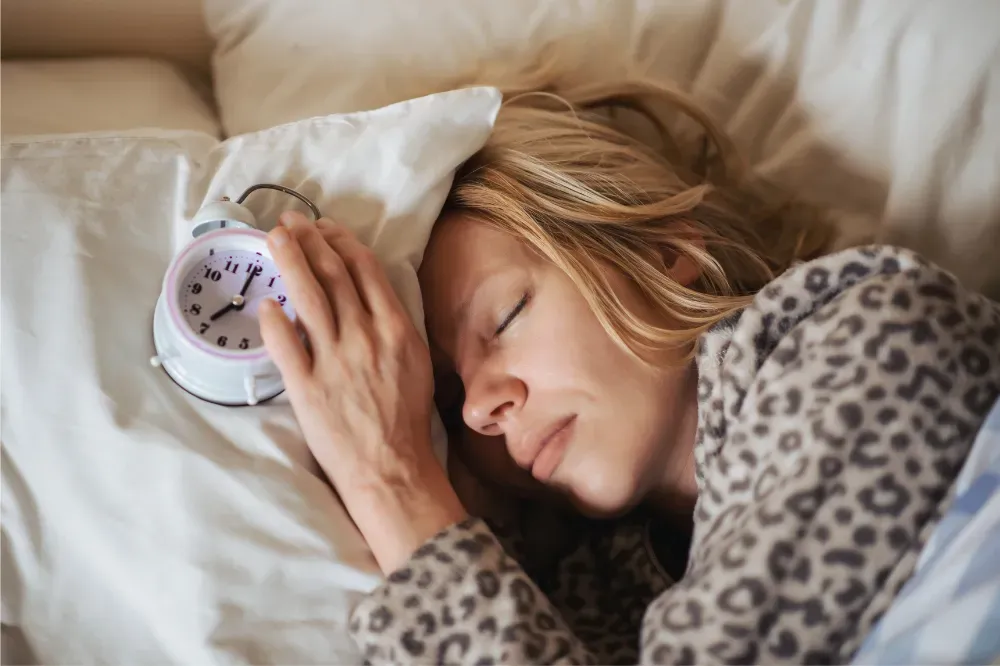
- Maintain a Regular Sleep Schedule: Going to bed and waking up at the same time every day can help regulate your body's internal clock and improve your sleep quality.
- Use Multiple Alarms: Set multiple alarms at different times to ensure you wake up. This can be especially helpful for those who have a habit of hitting the snooze button.
- Try a Vibrating Alarm Clock: These types of alarm clocks can provide a physical stimulus to wake you up.
- Use a Sunlight Alarm Clock: This type of alarm clock gradually increases the light in your room to mimic the sunrise and help you wake up naturally.
- Stay Hydrated: Drinking a lot of water before bed can help you wake up early due to the need to use the bathroom.
- Avoid Caffeine and Alcohol Before Bed: These substances can interfere with your sleep cycle and make it harder to wake up in the morning.
- Exercise Regularly: Regular exercise can help regulate your sleep-wake cycle and make it easier to wake up in the morning.
- Try a Loud Alarm Clock: If all else fails, a loud alarm clock can be a good last resort. Just make sure to keep it at a safe distance to avoid damaging your ears.
- Use an Alarm Clock App: There are many apps available that require you to complete tasks to turn off the alarm. This can help you wake up quickly and avoid the temptation to hit the snooze button.
- Consult a Sleep Specialist: If you're still having trouble waking up, it may be time to consult a sleep specialist. They can help identify any underlying sleep disorders and provide personalized advice.
In conclusion, while being a heavy sleeper can be challenging, there are many strategies and tools available to help you wake up more easily. By understanding the issue, recognizing its importance, and implementing effective methods, heavy sleepers can improve their sleep quality and wake up feeling refreshed and ready to start the day.
FAQ Section
Q: What is the best way to wake up a very heavy sleeper? A: The best way to wake up a very heavy sleeper is to use a combination of strategies such as setting multiple alarms, using natural light, maintaining a consistent sleep schedule, and creating a stimulating sleep environment. It may also be helpful to consult a sleep specialist if the issue persists.
Q: Can lifestyle changes really help a heavy sleeper wake up easier? A: Yes, lifestyle changes such as establishing a regular sleep schedule, improving diet and exercise habits, and reducing stress can significantly impact the quality of sleep and the ease of waking up for heavy sleepers.
Q: Should heavy sleepers use snooze buttons on their alarms? A: It's generally not recommended for heavy sleepers to use the snooze button. Doing so can lead to fragmented sleep and increased sleep inertia, making it harder to wake up fully. It's better to set the alarm for the latest possible time you need to wake up and get out of bed immediately when it goes off.
Q: How much sleep do you need at what age? A: The amount of sleep an individual needs depends on their age. The National Sleep Foundation provides the following guidelines: newborns (0-3 months) require 14-17 hours of sleep per day, infants (4-11 months) need 12-15 hours, toddlers (1-2 years) should get 11-14 hours, preschoolers (3-5 years) 10-13 hours, school-aged children (6-13 years) 9-11 hours, teenagers (14-17 years) 8-10 hours, and adults (18 years and over), which includes the elderly, should aim for 7-9 hours per night. These figures are inclusive of daytime naps as well as nighttime sleep.













